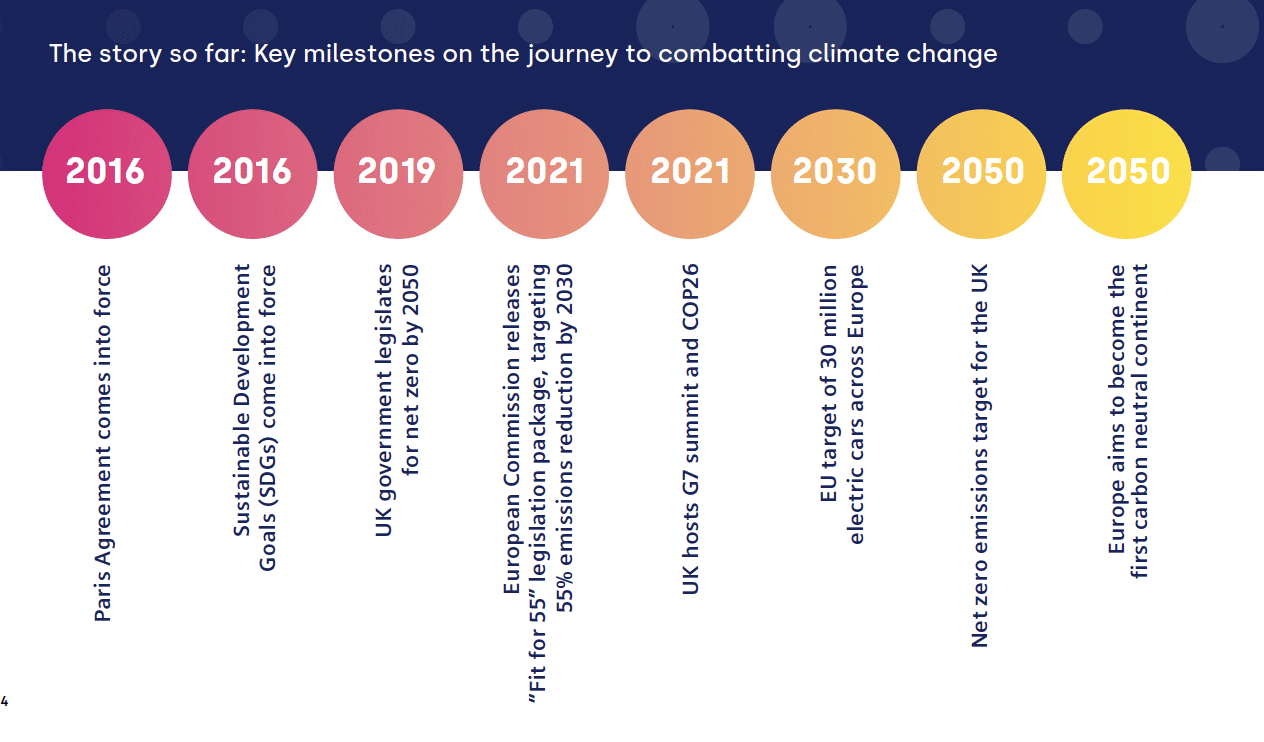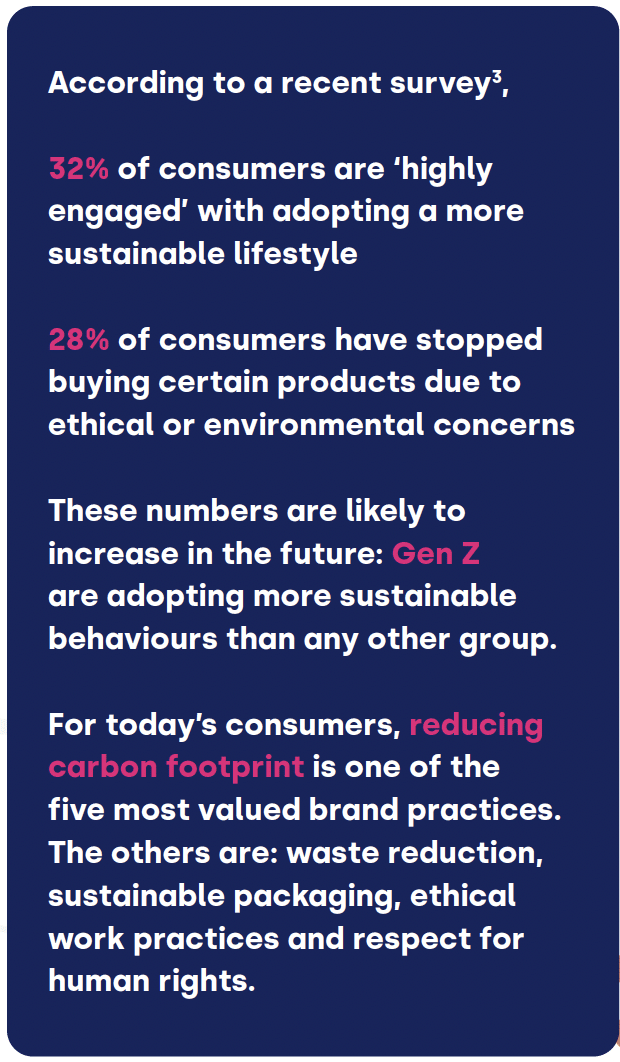The threat of climate change will affect every person on earth. Scientific predictions on the devastating effects of global warming have understandably provoked a global response. Governments around the world have pledged to reduce greenhouse gas (GHG) emissions and invest in low carbon energy.
Energy accounts for two thirds of global greenhouse gas emissions, meaning energy consumers have a crucial role to play in getting our nation to net zero.
In June 2019, the UK government became the first to pass a net zero emissions law. It required the nation to achieve net zero and end its contribution to global warming by 2050. The legislation has given rise to rafts of new statements, policies and regulations, all with one common theme: carbon reduction. And in the world of energy, the race to net zero is already well underway; static, centralised systems that rely heavily on fossil fuels are giving way to flexible, sustainable systems built around renewables.
Carbon Reduction Mandate: Why Every Business Must Participate

Every business must play a part
Renewable energy is a modern-day success story: technologies have rapidly become more efficient and cost effective, and solutions for integrating carbon neutral energy into the grid have advanced quickly. During 2020, 260 gigawatts (GW) of renewable energy capacity were added globally, breaking all previous records. Meanwhile, in April 2020, the UK’s electricity grid reached the greenest it’s ever been, with zero-carbon power sources making up 80% of the energy mix.
But this is no time to be complacent. As the energy infrastructure transforms, so too must our relationship with it. The intermittent nature of renewable energy sources make grid balancing more complex and energy prices more volatile. It becomes crucial for us all to work together to support grid balance – and for businesses to rethink the way they source and use energy.
The benefits of taking a more proactive, flexible approach to energy management are significant. Businesses that do so are not only helping to ensure that the energy system remains safe, stable and cost effective for us all, they are also putting building blocks in place for their own future stability and commercial success.
Benefits of sustainable energy choices
Commercial and reputational
There are several good commercial reasons to make more sustainable energy choices for your business. Key amongst these is the opportunity to boost your bottom line through cost savings and the creation of new revenue. This is covered in more detail on the box below.
However, the true value of taking a ‘green’ approach to energy management goes much deeper than short term profitability. It includes an enhanced brand perception and the ability to appeal to customers who increasingly care about the ethical and environmental credentials of every business they interact with.

This blog is an excerpt from the recent white paper “Making Sense of Sustainable Energy Choices: A guide for SMEs”. You can download the full guide below…
Carbon Reduction Mandate: Why Every Business Must Participate

